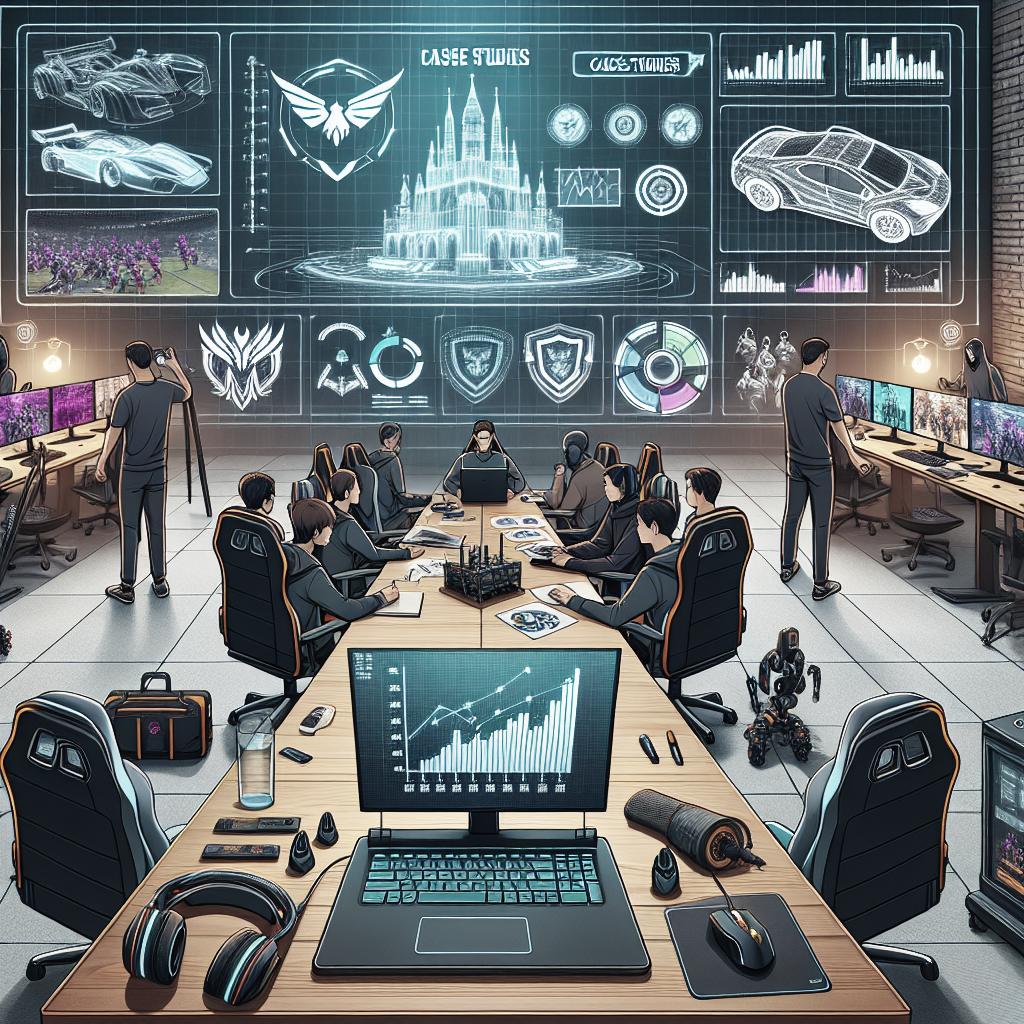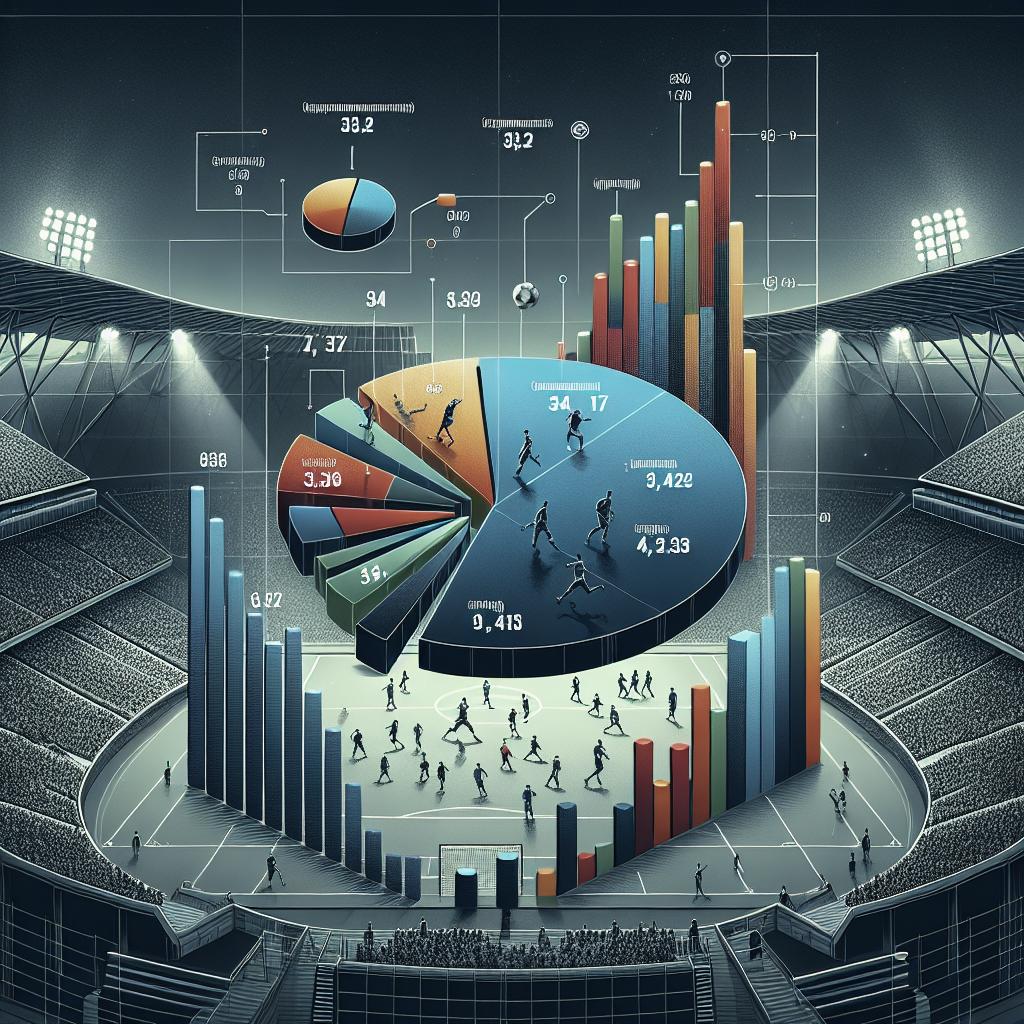### Artificial Intelligence in eSports [5 Case Studies] The world of eSports continues to expand at a rapid pace, with innovation at its core. One of the most revolutionary factors contributing to this growth is the integration of artificial intelligence (AI). By harnessing AI, eSports has enhanced everything from player performance to viewer engagement, revolutionizing how the industry operates. This blog post delves deep into five transformative case studies that showcase the remarkable role AI plays in crafting successful eSports strategies. These studies reveal how AI is being applied, providing insights into performance analysis, fan engagement, content personalization, training simulation, and talent scouting. Through these real-world examples, we can appreciate how AI is not just a game-changer but a pivotal element in the evolving landscape of eSports. #### Case Study 1: AI-Driven Performance Analysis in eSports Teams In the competitive arena of eSports, player performance can be the differentiating factor between victory and defeat. AI-driven performance analysis offers teams an edge by capturing and dissecting vast amounts of gameplay data. A prime example of this is Team Liquid, one of the leading organizations in the eSports landscape. Through AI, Team Liquid analyzes game strategies, player reactions, and even opponents’ tactics. This comprehensive data assimilation allows coaches and players to identify and correct weaknesses, refine strategies, and optimize overall gameplay. AI tools, such as deep learning algorithms, provide granular insights by reviewing hundreds or thousands of past matches within minutes—something human analysts would take hours or days to achieve. As a result, players receive actionable feedback almost instantaneously, introducing a new era of real-time strategic adjustments. For Team Liquid, leveraging AI has produced tangible results, enhancing both team cohesion and performance consistency across tournaments. #### Case Study 2: AI-Powered Fan Engagement in eSports Broadcasting Fan engagement has always been a crucial component of eSports, providing the ecosystem that fosters community growth and revenue streams. With developments in AI, broadcasting platforms have revolutionized how fans connect with the action. The streaming giant Twitch is at the forefront of this innovation. Through the integration of AI, Twitch offers features like predictive audience engagement, where machine learning models anticipate viewer preferences and interactions, tailoring streams accordingly. By applying AI algorithms, Twitch can analyze chat interactions and viewer behavior to deliver a more engaging and personalized viewing experience. This not only keeps audiences captivated but also increases viewer retention and platform loyalty. Moreover, predictive insights allow broadcasters to optimize content delivery, ensuring that every stream is an immersive and interactive experience, thereby creating a robust eSports fan culture. #### Case Study 3: AI-Driven Content Personalization for eSports Spectators The concept of personalized content has taken center stage in the digital age, addressing the unique tastes of individual users. In eSports, platforms leverage AI to deliver content tailored to spectators’ preferences. Take YouTube Gaming, for example, which uses sophisticated algorithms to analyze user behavior and monitor engagement metrics to recommend personalized content for viewers. By examining past viewing habits, search histories, and engagement levels, AI systems curate content that aligns with individual viewer interests. This customization not only increases viewership but also enhances user experience, making content discovery a seamless and rewarding process. Fans are more likely to encounter gaming channels, highlights, and matches that align with their preferences, ultimately driving deeper connections with the games and players they love. #### Case Study 4: AI-Enhanced Training Simulations for eSports Athletes Training is fundamental to an eSports athlete’s development, and AI-enhanced simulations are helping bring training techniques to the next level. Take the AI software developed by OpenAI—a neural network capable of learning from millions of games. OpenAI has collaborated with top-tier Dota 2 teams to provide them with AI-enhanced training simulations that mimic real-world match conditions, offering a zero-risk environment to experiment and refine skills. These AI simulations allow athletes to practice against a wide range of strategies and behaviors presented by AI opponents. Additionally, the simulations can replicate high-pressure scenarios, preparing players for the stresses of live competition. By consistently utilizing AI-enhanced simulations, eSports athletes improve their reflexes, strategic thinking, and adaptability—qualities necessary for top performance and success on the grandest of stages. #### Case Study 5: AI in Talent Scouting and Team Building Identifying the next generation of eSports talent has often relied on the unpredictable nature of human intuition. However, AI is transforming talent scouting and team building with data-driven solutions. A successful initiative in this arena is the AI-powered scouting platform, SpicyMatch. By analyzing thousands of players’ performance data from various games, AI models can identify emerging talents based on criteria such as gameplay efficiency, reflexes, and strategic prowess. This approach streamlines the scouting process, making it possible to discover hidden gems who might otherwise be overlooked. AI can recommend potential players who fit specific team dynamics and structures, ensuring that organizations assemble cohesive and competitive squads. Beyond scouting, AI can even simulate potential team combinations to predict team chemistry and potential success, optimizing team building from the ground up. ### Lessons Learned Below is a summary table that outlines the key elements from each case study of AI integration in eSports: “`html
| Case Study | Focus Area | Key Benefits |
|---|---|---|
| AI-Driven Performance Analysis in eSports Teams | Gameplay Analysis | Enhanced strategy refinement, real-time adjustments |
| AI-Powered Fan Engagement in eSports Broadcasting | Viewer Interaction | Personalized experience, increased viewer retention |
| AI-Driven Content Personalization for eSports Spectators | Content Curation | Tailored content discovery, improved viewer experience |
| AI-Enhanced Training Simulations for eSports Athletes | Skill Development | Risk-free practice environment, better adaptability |
| AI in Talent Scouting and Team Building | Talent Discovery | Data-driven recruitment, optimal team dynamics |
“` These case studies underscore the transformative impact of AI across various facets of eSports. From player performance and fan engagement to talent scouting and content personalization, AI continues to drive innovation and shape the future trajectory of this dynamic industry. As AI technology evolves, so will its applications in eSports, providing ever-evolving strategies that pave the way for continued success.


